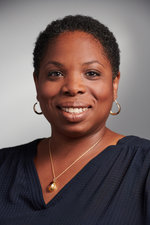
Tell me about your current role at Yale.
I’m a Project Planner in the Office of Facilities Planning and Construction. My job is to manage the design phase of capital projects for the University, specifically for the School of Medicine and West Campus.
What are your main responsibilities?
Once a department identifies a need for a repair or renovation, I work with them to put together an overview of the project that includes a plan, budget, and timeline for completion. If the overview is approved I work with consultants to design and document the agreed upon scope of work. Then the project is transitioned to the project management group who manages the construction phase.
What do you like most about your work?
Every project is different and I am always learning something new. I work on office, clinic, and lab projects so I work with different people and different specialties.
How does your job affect your general lifestyle?
At work, I plan for the best and worst-case scenario when delivering a project for my clients. And at home I do the same. I always have a plan A, B, and C!
How did you begin your career?
I always knew I wanted to study architecture. In high school, I was good at math, physics, and art; architecture seemed to be at the intersection of all three.
What steps would you recommend one take to prepare to enter this field?
There are many ways you can approach this field. I was an architect before I became I project planner. Others were engineers or construction managers first. Because this is a technical field it is not enough to have strong project management skills, you also need a technical background. I would say get experience working or studying in any of the AEC (Architecture, Engineering, or Construction) fields first, then make the switch to project management.
What skills, abilities, and personal attributes are essential to success in your job/this field?
You need to be organized, flexible, and able to multi-task. The University is a dynamic organization so being able to adapt to new information is important. Also, be a good listener – it is important to hear what people are saying as well as what they are not saying.
If you could do it all over again, would you choose the same path for yourself? If not what would you change?
I wouldn’t change my career. I love architecture and I love healthcare planning. So no, I wouldn’t change my path.
What does YAAA mean to you?
It’s a piece of the puzzle of fitting in at Yale. The YAAA is a professional group of likeminded individuals. It’s a support group; it’s networking.
What advice do you have for other minority women looking to seek a career in your field?
Put your head down and be the best professional you can. Take every opportunity to learn something new and add it to your tool kit. For most of my career I was the only person of color in my department or firm, so you will need to be resilient to avoid feeling culturally isolated. However, there is a community if you look for it. Join professional organizations like the National Organization of Minority Architects (NOMA), National Association of Women in Construction (NAWIC), National Society of Black Engineers (NSBE) to name a few; or seek out likeminded groups like artistic communities, mentoring groups, or organizations like Habitat for Humanity. Build your own community. Lastly, be confident in who you are and what you contribute to your organization.